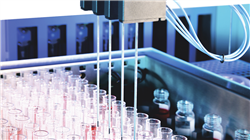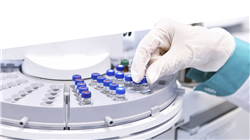University certificate
The world's largest faculty of pharmacy”
Why study at TECH?
Through this 100% online Postgraduate certificate, you will acquire the skills to identify disease outbreaks, assess health trends and recognize changes in the incidence of disease in the population”

A recent report by the World Health Organization shows that the incidence of communicable diseases continues to be a global challenge for the health system. In this regard, epidemiological surveillance is an indispensable tool for the early detection and control of disease outbreaks. Faced with this situation, pharmacists play an active role in data collection or data reporting. In this way, these professionals contribute to the prevention and active surveillance of infectious diseases.
Within this framework, TECH launches a revolutionary and very complete Postgraduate certificate in Public Health Surveillance. The academic itinerary will analyze the mechanisms to design effective health protection programs, taking into account aspects such as the analysis of the burden of pathologies or the evaluation of the impact and communication of results. In this regard, the syllabus will delve into the latest innovations in both Pharmacology prevention and control systems. Thanks to this, graduates will develop advanced skills to ensure efficacy and safety during drug administration.
In order to strengthen these contents, TECH offers a 100% online educational environment, adapted to the needs of busy pharmacists who want to advance their careers. It also relies on the Relearning methodology, based on the repetition of key concepts to fix knowledge and facilitate learning. In this way, the combination of flexibility and a robust pedagogical approach makes it highly accessible. In addition, professionals will have access to an extensive library of innovative multimedia resources in different audiovisual formats, such as interactive summaries, explanatory videos, case studies and infographics. In this way, pharmacy personnel will have access to an immersive learning experience that will optimize their daily practice and significantly raise their professional horizons.
This academic itinerary gives you the opportunity to update your knowledge in a real scenario, with the maximum scientific rigor of an institution at the forefront of technology”
This Postgraduate certificate in Public Health Surveillance contains the most complete and up-to-date scientific program on the market. The most important features include:
- Development of practical case studies presented by experts in health sciences
- The graphic, schematic, and practical contents with which they are created, provide scientific and practical information on the disciplines that are essential for professional practice
- Practical exercises where the self-assessment process can be carried out to improve learning
- Its special emphasis on innovative methodologies
- Theoretical lessons, questions to the expert, debate forums on controversial topics, and individual reflection assignments
- Content that is accessible from any fixed or portable device with an Internet connection
You will deepen your knowledge in Research and Analysis of Indicators to evaluate the effectiveness of Public Health interventions, such as prevention programs or vaccination campaigns”
The program’s teaching staff includes professionals from the field who contribute their work experience to this educational program, as well as renowned specialists from leading societies and prestigious universities.
The multimedia content, developed with the latest educational technology, will provide the professional with situated and contextual learning, i.e., a simulated environment that will provide immersive education programmed to prepare for real situations.
This program is designed around Problem-Based Learning, whereby the professional must try to solve the different professional practice situations that arise during the course. For this purpose, the students will be assisted by an innovative interactive video system created by renowned and experienced experts.
Do you want to incorporate into your practice the most innovative strategies to respond to health emergencies such as epidemic outbreaks? Get it with this program"

With TECH's disruptive Relearning methodology, you will assimilate all the knowledge in an optimal way and successfully achieve the results you are looking for"
Syllabus
Thanks to this university program, pharmacists will have a solid knowledge of the fundamentals of Public Health Surveillance. The syllabus will delve deeper into self-monitoring systems; addressing factors such as risk identification, the establishment of preventive protocols or the monitoring of control points. At the same time, the syllabus will analyze the interpretation of epidemiological data on chronic diseases. In this way, graduates will be able to take preventive measures to control the spread of these pathologies. The didactic materials will also analyze the response models to alerts, epidemic outbreaks and emergencies. Thanks to this, professionals will develop protocols to optimally manage crises.

You will be able to identify diseases of interest for epidemiological surveillance, including chronic pathologies”
Module 1. Public Health Monitoring
1.1. Public Health Protection, Prevention and Surveillance: Classification, Evaluation, Management, Control and Risk Communication
1.1.1. Health Protection and Prevention
1.1.2. Health Surveillance and Risk Management
1.1.3. Risk Communication. Mechanisms and Limitations
1.2. Self-control and Surveillance Systems: Hazard Analysis and Critical Control Points
1.2.1. Establishment of Preventive Protocols
1.2.2. Risk Identification and Assessment
1.2.3. Implementation and Follow-up. Control Points
1.3. Research and Critical Analysis of Process and Result Indicators, Records, and Evaluation Systems Development and Innovation
1.3.1. Research and Analysis of Indicators
1.3.2. Recording and Evaluation for Efficient Data Management
1.3.3. Innovation in Evaluation Systems
1.4. Research in the Design, Implementation, and Impact Evaluation of Health Protection and Prevention Programs
1.4.1. Mechanisms for the Design of Health Protection and Prevention Programs
1.4.2. Implementation of Health Protection and Prevention Programs
1.4.3. Analysis of the Impact of Health Protection and Prevention Programs
1.5. Analysis and Interpretation of Epidemiological Data on Environmental Health: Surveillance, Estimation, Plans and Programs
1.5.1. Importance of Environmental Health in Human Health
1.5.2. Exploration of Environmental Epidemiological Data
1.5.3. Practical Application of Environmental Data Analysis
1.6. Interpretation of Epidemiological Data on Chronic Diseases and Planning: Surveillance, Estimation, Plan Design, Programs and Screening
1.6.1. Epidemiological Analysis of Chronic Diseases. Importance of Follow-up
1.6.2. Design and Development of Interventions for Chronic Diseases
1.6.3. Epidemiological Surveillance and Disease Load Analysis
1.7. Research in Primary Prevention of Chronic Diseases: Health Protection
1.7.1. Research in Primary Prevention of Chronic Diseases
1.7.2. Applied Research in Prevention and Health Protection
1.7.3. Impact Evaluation and Communication of Results
1.8. Innovation in Pharmacovigilance Monitoring and Prevention Systems: Alerts and Preventive Interventions
1.8.1. Importance of Pharmacovigilance. Safety in the Use of Medications
1.8.2. Advances in Pharmacovigilance Monitoring Systems
1.8.3. Risk Prevention through Preventive Interventions
1.9. Models of Response to Alerts, Epidemic Outbreaks and Emergencies Development of Protocols and Procedures
1.9.1. Response Strategies for Health Emergencies
1.9.2. Development of Crisis Management Protocols
1.9.3. Implementation and Evaluation of Emergency Response
1.10. International Health and Innovation in International Cooperation for Epidemiological Surveillance
1.10.1. International Health Global Perspective on Epidemiological Surveillance
1.10.2. Innovation in International Cooperation for Epidemiological Surveillance
1.10.3. Challenges and Future of International Health Cooperation

This is a flexible university qualification that is compatible with the most demanding Daily responsibilities. What are you waiting for to enroll?"
Postgraduate Certificate in Public Health Surveillance
If you are a professional in the health sector and want to specialize in the most advanced methodologies and practices of epidemiological surveillance, you've come to the right place. At TECH Global University you will find a complete Postgraduate Certificate in Public Health Surveillance that offers you a comprehensive and updated training, focused on the detection, monitoring and control of diseases to protect and improve the health of communities. During the program, you will explore in depth the principles and techniques of public health surveillance, including the collection, analysis and interpretation of epidemiological data. In addition, you will learn how to use modern tools and technologies for disease surveillance, as well as methods for identifying and responding to outbreaks and health emergencies. The program also addresses the importance of effective communication in public health, providing strategies to inform and educate the public and decision makers about health risks and prevention measures. In doing so, you will develop critical skills to identify disease patterns, assess risks, and design effective interventions to protect public health.
Specialize in public health surveillance
The online format of this course offers unparalleled flexibility, allowing you to access the content from anywhere and at any time. This modality facilitates the integration of learning with work and personal responsibilities, allowing you to advance at your own pace. The teaching team is composed of experts in public health and epidemiology, who bring a combination of theoretical knowledge and practical experience. These professionals will guide you through the course content, offering ongoing support and personalized feedback to enrich your learning process. Upon completion, you will be prepared to assume key roles in disease surveillance and control within health organizations, government agencies, NGOs and international organizations. You will be able to implement and manage efficient surveillance systems, contribute to data-driven health policy formulation and proactively respond to health emergencies. Enroll now, you will be ready to face contemporary challenges and improve the health of populations at local, national and international levels.







